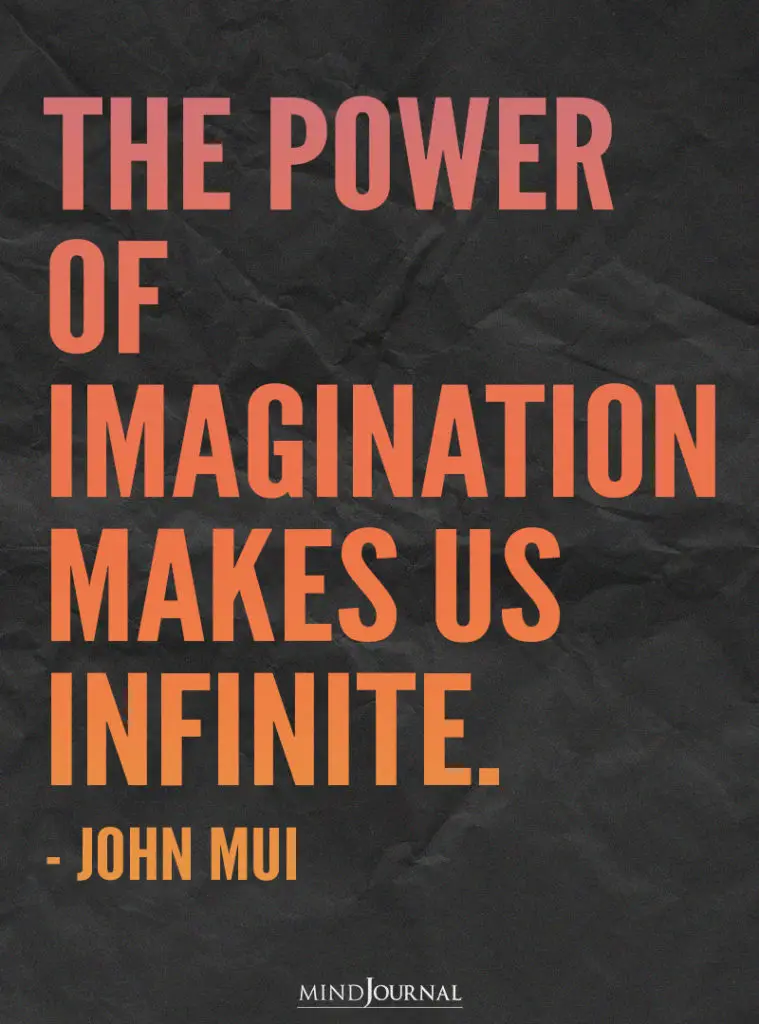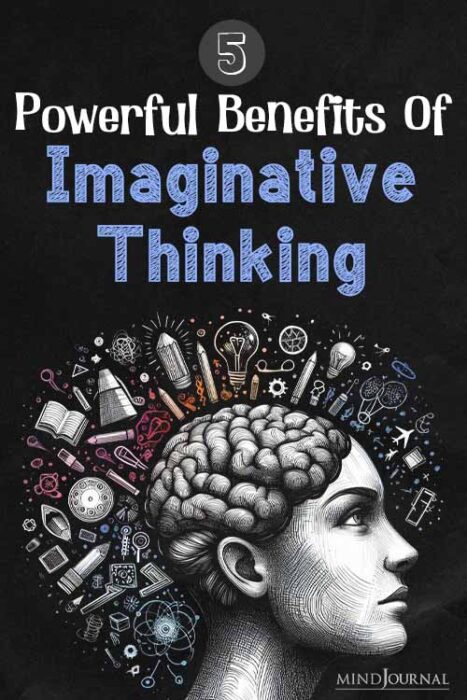The benefits of imaginative thinking are unending to be honest. However, in this article we are going to explore five of the most interesting and powerful benefits of imagination and imaginative thinking.
KEY POINTS
- Imagination is a fundamental aspect of human life.
- Imagination enables one to look beyond the world as it is.
- Imagination helps create different lenses through which to see the world.
Our imaginations make it possible to invent alternative realities from “what is” and “what could be.” It is the ability to “see” something that does not exist. Focusing only on what we already know can limit our ability to think more broadly.
The human imagination is a predictive tool that enables people to foresee situations they never previously experienced. Everyone has this capacity to some degree.
Related: Are You Gifted With Imagination? Find Out With This Quiz
5 Benefits of Imaginative Thinking
1. Imagining possible futures
Imagination frees us from the confines of our immediate reality. Imagining the future enables us to evaluate alternative paths forward, anticipate how we would feel if they happened, and choose which to pursue.
For instance, by simulating a potential event (job interview, holiday options) via mental imagery, we can “test out” in the mind potential emotional consequences. The imagination of the desired future (losing 10 pounds) motivates the person to cope with obstacles (lack of motivation to exercise, or temptation to indulge) to attain goals.
Imagination can be quite helpful in making life-altering decisions. For example, one cannot really know whether one wants to become a parent without experiencing being a parent.
If one cannot reasonably imagine oneself with radically different values, then plausibly one cannot appropriately imagine the values associated with the outcomes of one’s actions.

2. Counterfactual thinking
Counterfactual thinking (alternative versions of one’s personal past) refers to the comparison of reality to hypothetical alternatives (“what if I had made different choices”).
People create counterfactual alternatives to reality when they imagine how things would have turned out differently. Imagined alternatives (“If only I had studied harder for this exam”) may trigger guilt, remorse, and shame.
However, thoughts about how things could have turned out differently provide a roadmap for change.
3. Distancing from the problem
Imagining events from a distance encourages abstract thinking that boosts creativity. After several years of experience, people start to repeat themselves; it becomes more of the same old approach. They become insiders.
One of the most effective ways of cultivating an outsider perspective is to feel distant from the problems. For example, traveling, getting away from the places we spend most of our time.
The distance allows one to view problems in a more imaginative way. Suddenly, the mind is aware of those considerations that were previously ignored, and those facts that should be ignored.
Related: 45+ Best Walt Disney Quotes To Inspire Your Dreams
4. The vividness effects
Any situation that affects our ability to visualize events and situations may affect our judgments. Visual images are more emotionally salient than words. We recall emotionally charged events far more than mundane ones.
However, this emotional partiality impairs our ability to see the big picture. For example, lawyers have known for a long time that the vividness of the testimony offered by a witness can influence the judgments made by a jury.
5. Metaphor
Imagination is central to understanding and interpreting figurative language. Metaphors are figures of speech to convey a truth about the real world. They are transferred from another context to give us new ways to think. We can imaginatively see a particular perspective on the focus of the metaphor.
For example, the phrase, No man is an island, implies that no one is truly self-sufficient. We portray time as money (“spending time”). Love is a journey (“their relationship hit a dead end”).

The dark side of imagination
Delusions and ordinary cases of self-deception have been characterized as disorders of imagination.
Delusions can be characterized as beliefs that are dysfunctional in their content or formation. That is, a delusion is an imagined interpretation that is mistaken by the subject as a belief.
How to improve your imagination?
Imagination is deeply connected with reality. What we imagine can affect what we believe and vice versa. The richer the personal experience is, the richer the ingredients for imagining.
Related: 10 Book Recommendations To Expand Your Worldview
That is, imagination is nourished by various resources on which the person can draw. Through books, art, discussions with others, and education, we can build our knowledge of events and places that we have never experienced.
Written By Shahram Heshmat
Originally Appeared On Psychology Today









Leave a Reply
You must be logged in to post a comment.